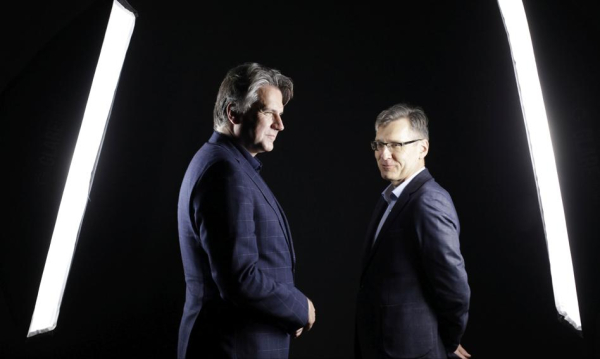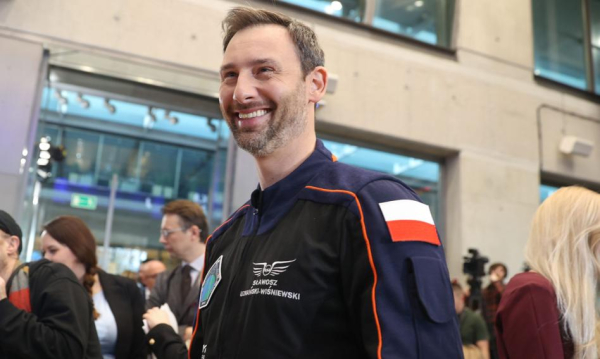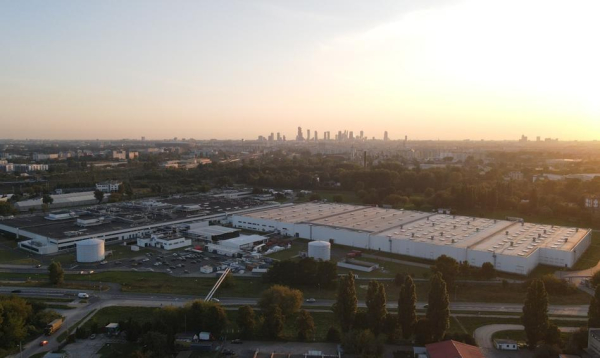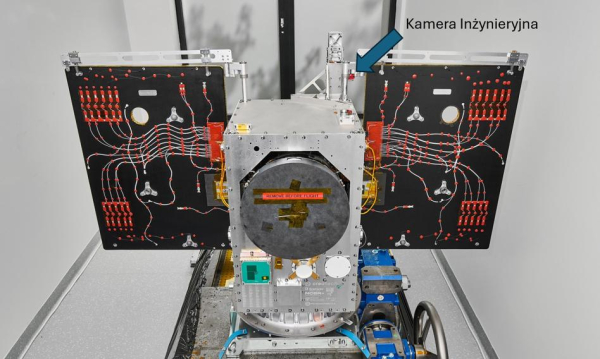Poland urgently needs a strategy for the development of innovations, meanwhile something is jammed in the system supporting them – warn Paweł Przewięźlikowski from Ryvu and Grzegorz Brona from Creotech. And they suggest some solutions.

The entire interview is available at pb.pl »
PB: In Poland, in recent years, a social ambition has clearly emerged to create great things that we can be proud of: infrastructure, but also innovations and technologies. How are we doing with this and what are we missing?
Grzegorz Brona, CEO of Creotech Instruments: Basics. To create a modern economy and modern solutions, you first need to clearly define what you want to create. We lack an industrial and innovation policy, a definition at the strategic level of where we want to be in 5, 10 and 15 years. And this is the case in France, where the goals are set by the Ministry of Economy, Finance and Technological Independence. It is impossible to create an effective system to support the development and ecosystem of cooperating companies if we do not know what we are striving for and what we want to achieve.
What should we strive for?
Paweł Przewięźlikowski, CEO of Ryvu Therapeutics: This vision has been gradually emerging for 30 years. When I started my professional career, the challenge was not to give up the entire Polish market, e.g. in terms of software, to Western corporations. People like Prof. Janusz Filipiak had this vision, they knew that we in Poland can also build software, sell it first in the country, build a critical mass, and then go abroad and even take over Western competitors. In recent years, such thinking has been demonstrated by leaders of the Polish economy, such as CD Projekt, InPost, Nowy Styl, Selena or Elemental Holding. After all, we are in no way worse than the Spanish, French or Germans. Our economy needs strong domestic enterprises that can develop innovations and that can afford expansion.
So what's missing?
GB: We have a vision on the entrepreneurs' side, but we lack it on the other side. There is a lot of talk about innovations, also at the government level, but in contacts with the administration we encounter – let's call it – a reluctance to listen or lack of understanding. And this results directly from the fact that we do not have the appropriate documents, strategies, there is nothing to refer to to explain how our activities fit into the goals that Poland should strive to achieve.
It's interesting that you speak first of the lack of strategy, and not the lack of money.
GB: In my opinion, there is a lot of this money, especially now, in this and the next EU perspective. The problem is that there are no strategic decisions on the direction in which this money should flow. Existing programs are horizontal, they reach all possible takers without focusing on specific goals. And yet we should know what we want to strive for as a country. What technologies do we want to develop by 2035? What is worth creating to be competitive on the global market? Polish specialists have achievements in specific fields, they can overtake the world, or at least the European leaders in them. However, the money is scattered on the market equally with the hope that something will come of it.
PP: In one of the last PARP competitions, half of the available money was left on the table – it was not allocated at all. And this is particularly frustrating. There really is no shortage of money to support innovation, but we are now at a time when the state is unable to invest a large part of it due to poor competition criteria, so this money will have to be returned to the EU. And the rest is distributed chaotically.
(…)
Aren't you afraid that if we have planned innovations, the state will simply plan badly? And the money will end up in dead ends?
GB: It's not about a few officials locking themselves in a windowless room and thinking about a strategy that they will later announce to the world. There really is something to build on. Since 2018, PARP has been creating technology development maps in various industries with entrepreneurs, and the substantive work has been done. But what good is it if these studies have become so-called half-baked?
PP: The state should not point the finger at what to invest in, but should indicate broad trends and take care of vertical financing, not horizontal financing. Are we entering space technologies as Poland? Okay, so what should be our specialty – rockets, satellites? We also need people with a start-up mentality, entrepreneurial, understanding technologies and willing to take risks in institutions that decide on innovations.
Or maybe the state is simply not a good source of money for innovative, risky projects? Bureaucracy by its nature bureaucratizes everything, and the state does not collect a risk premium. If it gives a subsidy and the company succeeds, its shareholders will earn money, not the state.
GB: You have to decide whether it is worth financing innovations with public money at all, or only hard infrastructure, roads, railways, etc. The state clearly has a profit from this risk. A few years ago, my company received a grant for almost EUR 10 million for a microsatellite project. We created a product and now we have orders for it worth over EUR 160 million. We will pay more in taxes alone than this grant, and we have employed over 100 additional people along the way who are specialists in space technologies.
PP: Ryvu's largest shareholders are Polish pensioners through OFE. Pension funds first bought our shares in 2014 at PLN 10. Now, taking into account the spun-off sister company Selvita, they are worth seven times more and there is a prospect of profit from the commercialization of our drug projects. I am not talking about indirect taxes, hundreds of employees, or ZUS contributions. One innovative success of a company registered in the country means huge money for the state – BioNTech, which developed one of the COVID-19 vaccines, paid EUR 2 billion to the German budget after the pandemic.
(…)
Years pass and nothing improves in Polish innovations?
GB: Of course, we are recording constant progress in Poland. In 2012, our space industry was practically non-existent, now we have our own technology of satellites and small rockets. Creotech was the first space company in the country, now we have dozens of them. It is not that nothing works in Poland and will not work. However, innovation is a race, you cannot stop for a moment, because otherwise someone will overtake us in these hard-earned specializations.
PP: We have innovative companies in Poland and we have thousands of educated people who have started their careers in the last decade and have experience in technologically advanced industries. Will these people want to start their companies in Poland or move to a place where support is better? In recent years, innovation in Poland has been put in the spokes. This bike is still moving forward somehow, but if nothing changes, it may soon tip over.
The entire interview is available at pb.pl »






